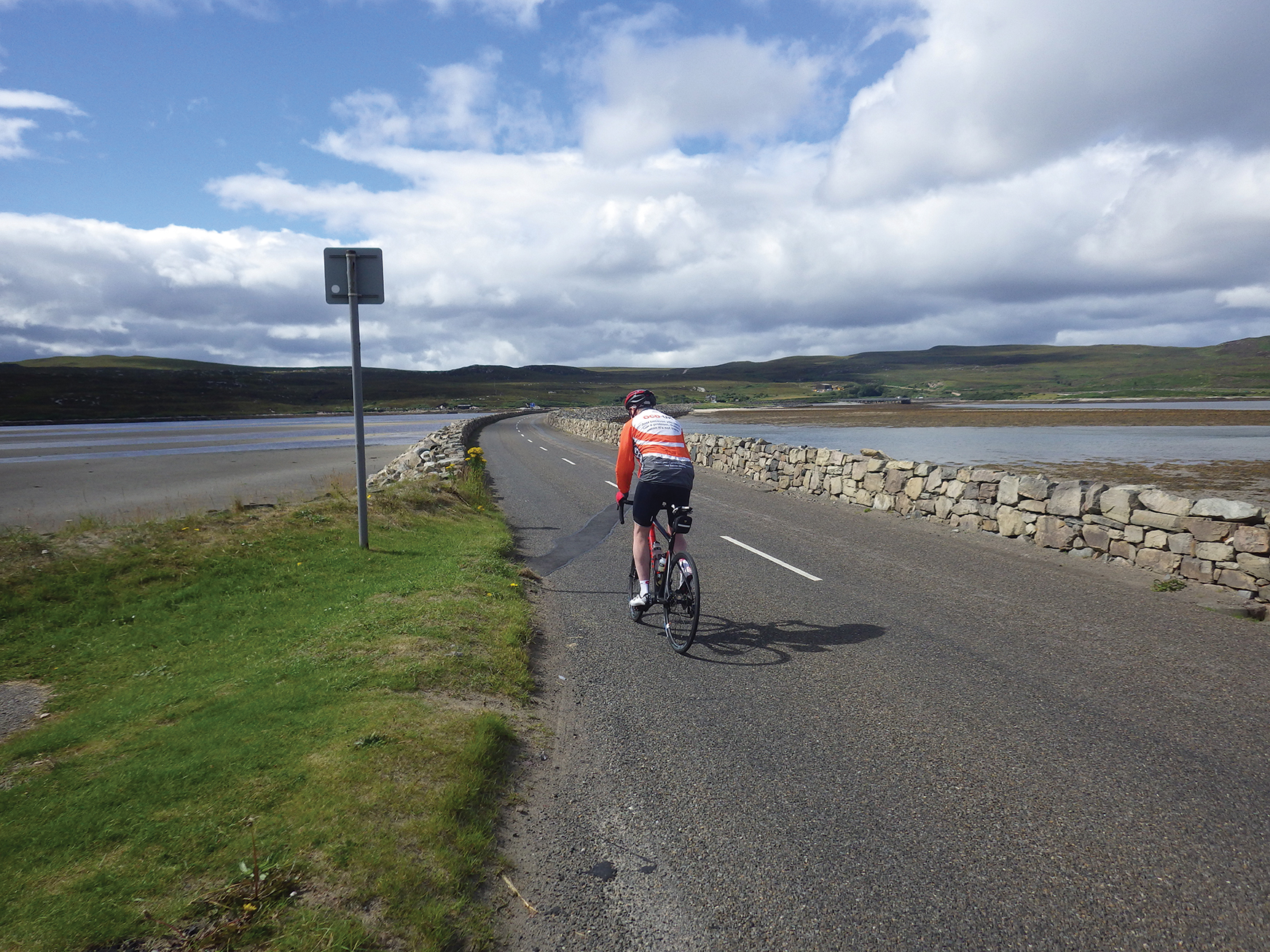-
Posts
27,446 -
Joined
-
Last visited
Content Type
Profiles
Events
Forums
Store
Everything posted by Ashley
-
-
Ok I have created the forum, and I am happy to rename it if there is a collective preference for the name of the space. Caramoole do you want me to move the poetry thread into there?
-
We did have something years ago @ocdjonesy but I am more than happy to support this. Do you mean a separate forum or did you mean just a thread? I know at the conferences we have hosted writing, poetry and art workshops and some people found them so cathartic to express their OCD in such a way. So if having a space to share artistic contributions with each other is helpful I am happy to create a forum. Let me know what you want I can't draw to save my life, and I am afraid my artistic contribution to the last drawing workshop that Zoe hosted was to draw a rude word to what I wanted OCD to do... it was actually weirdly helpful though.
-
The article misses a point. There is also denial to accept that your obsessional beliefs and body emotions may be as a result of OCD.
-

Attractions Vs Fear (What is What!)
Ashley replied to Worto's topic in Obsessive-Compulsive Disorder (OCD)
No point us going over old ground, and certainly not on somebody else's thread. But I will just say again, the fact you keep coming here suggests you know it is OCD. -

Attractions Vs Fear (What is What!)
Ashley replied to Worto's topic in Obsessive-Compulsive Disorder (OCD)
I am trying to work out if you are trying to offer help and advice to Worto to convince them they have OCD or yourself? Obviously deep down I think you know you have OCD, otherwise you wouldn't still be using our forums, so OCD yeah? -
The majority of our users are UK based Handy, as we are a UK organisation.
-
Hello there Gingham. I am sorry that the end of the walk was somewhat spoiled by the incident. I am always unsure on something like this on the forum where I should be supportive and helpful, and where that could be going down the road of reassurance. I want to help of course, so perhaps I can flip the question. Do you think if I sprayed bleach on the concrete in my local supermarket because of an OCD cleaning compulsion I would be in trouble for that? I think the other thing to day and again I am torn if I am offering reassurance here or not, but your OCD is assuming the worse. As you started out by saying, it could have been wet sand.. that stuff is a ****** to clean out sometimes. Not sure I have said anything to help, but please don't feel ashamed you have nothing to be ashamed about
-
Hi Paddy, Welcome to the forums I am so sorry that things are such a challenge right now. It does seem strange that they won't give you a new prescription and expect you to wait until November. If they do offer a new medication is that something you're open to? If so, and because of the struggles you describe I wonder if you should ask the GP to push for you to be offered an emergency review appointment? Have you had or are you having any therapy input for the OCD at the moment? Ashley.
-

Does ocd get worse when therapy starts?
Ashley replied to Lisa123's topic in Obsessive-Compulsive Disorder (OCD)
In the UK the main starting point for treating is a service called NHS 'Talking Therapies'. Within these services a person will be able to access CBT for OCD. I would not say this is common, but I have often heard people say they got upset after their first therapy session. The only time I have really been upset with OCD was after my first session, I sat in the bath that evening and just cried. Never done that before or since, and I put it down to the fact I had opened up about my OCD for the first time and about stuff I had kept buried for previous decade. The 'whack-a-mole' type thing with OCD can happen, although not sure I have hard of it after a therapy session, but maybe the session stirred something up? When is your next session with the therapist, certainly mention it to them. I agree with northpaul, hold on to that feeling of hope and despite how bad this weeks been, things can get better -

Over 50s Zoom OCD Support Group
Ashley replied to Ashley's topic in Obsessive-Compulsive Disorder (OCD)
Hope to see you next time Snowy, we had 15 people on this weeks meeting I think. The continuing runover discussion point/theme for next month is.. How do you talk about OCD to a friend or family member when intrusive thoughts bombarding with taboo subjects. How do you tell someone, when do you tell then. -

Over 50s Zoom OCD Support Group
Ashley replied to Ashley's topic in Obsessive-Compulsive Disorder (OCD)
Another group this evening for anyone in this age group that wants to join us You just need a Zoom account to register and attend the group. -

Where does ocd come from?
Ashley replied to StressedOut101's topic in Obsessive-Compulsive Disorder (OCD)
Hello. The reality is there are more theories than actual proven facts. My general suspicion is I don't believe any one things is where OCD comes from, but perhaps a combination of factors that have to collide at the wrong time for OCD to stick and become that phrase 'Brain Lock'. But, regardless of individual belief around what causes OCD, we are generally agreed on the fact that OCD can be treated and the best way to do that is using psychological therapy with (or without) recommended medications for OCD. Try not to get too stuck on the mechanics of what causes OCD in a person, whilst it is interesting and one day we may work it out, but even if you find out, it is unlikely to help you in the grand scheme of things and is unlikely to change what needs to happen next. -

Taking that leap of faith - so hard
Ashley replied to Ashley's topic in Obsessive-Compulsive Disorder (OCD)
Thank you everyone. I am going to have a read through later -
Not sure you needed to explain this to us.
-
So as many of you know I have had some success in tackling much of my OCD, I can now use the toilet (at home and in public) without needing to spend two hours showering. My OCD always had a little thing about sexual bodily fluids, but it was always about a quick shower after (15 min), so I never spoke about it to anyone (big mistake). As my toilet fears became less of an issue and I was pretty much not doing any OCD compulsions most days very quickly and more or less capturing me off guard the OCD mushrooms big time over sexual bodily fluids, when with someone and when alone. To the point where I don't just clean my entire body the bedroom and bathroom also get bleached, an entire set of behaviors that takes two hours. Because it's all mentally and physically draining I am not active, but every few weeks my body doesn't give me much of a choice, my brain enjoying a romantic dream/desire/fantasy as I sleep I ejaculate (against my will). I know what I need to do in terms of behavioral work, but there's something subconscious making me feel shame, disgust (even though I know I shouldnt), perhaps a mix of physical and mental contamination, I don't know. So I need to do some exploratory cognitive work to understand why I truly worry. But I can't get treatment yet, hence in the stuck stage. So this happened overnight and today when I woke up I lay in bed for a bit and was so close to getting up and going around touching things... I was wanted to do it, but I just couldn't get myself to take that step out of bed and take that leap of faith. It's almost a belief step, that I can't quite take... I think of it like that clip from Indiana Jones and the Last Crusade where Indy needs to take that leap of faith to save his dad. If you're not familiar with it, here is the clip. Not sure why I am posting, I know what to do, I am just writing in case it helps me unlock something as I write. But this week I will do some work to push on for more therapy.
-
I understand the advice, and you're right nto to trust thoughts, assume they are OCD lying thoughts, but I wonder if seeking the truth is a slippery slope? We all know OCD works, the problem is with OCD it will never accept 'facts' or 'truth' it will always throw more 'what ifs' or doubts.
-
There is some very rigid black or white thinking here, which is a shame because Polarbear's point was intended to help. We are not talking advanced driving level, we are talking Mr/s Average Joe Public have a little sing along whilst driving to work or the shops etc. We are not suggesting closed eyes, air guitar singing As others have said, if it was not safe to drive whilst listening and singing along to music then I am fairly sure cars would not have radios built into them now. Where do we draw the line, no talking to passengers either as that is a distraction, asking kids in the back seat not to talk to each other whilst driving. It's absolutely possible to sing along whilst keeping both hands on the wheel, eyes open and on the road in front and the occasional check in the mirror for behind. If such action helps a person find a way to distract from intrusive thoughts then sing along I say and of course, always drive safely.
-
Come on northpaul, that’s a little OTT. I listen to music all the time when driving, and when a good tune comes on I crank it up. I would argue another point. Having a little distraction music perhaps ensures more road focus than racing intrusive thoughts.
-

Tips on Dealing with a Racing Mind?
Ashley replied to Worto's topic in Obsessive-Compulsive Disorder (OCD)
Good question, and I have seen many great suggestions posted over the years. Of course, when in the moment it will be very personal on what helps, and sometimes what does work for each of us, won't always help. But hopefully others will post with what helps them. For me I can't read anything heavy because my anxiety/mind drowns out the focus part of the book. But what always helps me at the end of a bad day is watching something I can find a way to laugh at. Usually sitcom episodes I already know and like, short in focus time and if I want to I can watch another episode or one episode is enough to distract me, something we sometimes call 'refocus'. But as I say it's very personal for each of us, some find losing themselves in a good book is perfect for them. I know some find sticking the music on and singing away is the thing that helps. -
Indeed, OCD is that, torture. But torture that can be broken and challenged. Are you getting any kind of medication of therapeutic treatment through your local NHS at the moment?
-

Sorry - Did something stupid (Merged Thread)
Ashley replied to Nolightleft's topic in Obsessive-Compulsive Disorder (OCD)
I have no idea on your romantic relationship with your wife, that may or may not be the right thing to do from a non-OCD perspective. However, from an OCD perspective I have seen so many people take such action to leave jobs or relationships because of various OCD obsessions. Guess what, after they leave, any relief from OCD is short lived, just hours or a day or two, maybe couple of weeks if lucky, but then the OCD still comes back with the exact same bombarding of obsessions or a slight variation of the same theme. So before you may any rash decisions I would recommended taking time to look at you are dealing with OCD. You simply use the forum primarily to post how awful you feel or to post your intrusive thoughts (which I suspect is now a compulsion in itself). That's not helping you at all, so perhaps it's time to take a different tact? Maybe a different approach won't work either, but at least it's got to be worth trying? One thing you could do is read back on all your threads, and look at the wonderful advice you have been offered by so many people. Perhaps it's time to start implementing some of these suggestions. Even if doing so takes time, and there will be some blips along the way, at least it's trying something that might help or at the very least might make things feel less horrid for you. Good luck -
Can't say I have ever personally worried too much about the stress of OCD ending my life early. But if it does, it does, just gives me another reason to try and work harder now with therapy to improve my quality of life the best I can, and then to make sure I use every day as a precious and enjoy those rare moments of non anxiety and not to feel guilty for enjoying days here and there.



